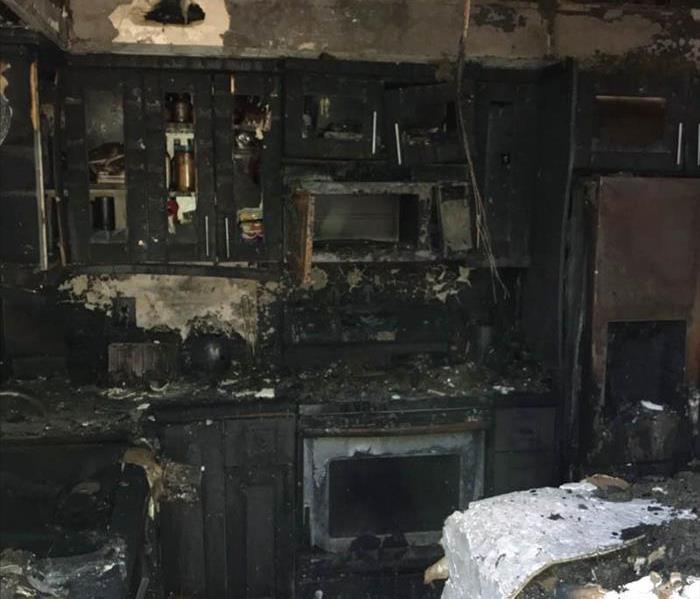Home Fire Prevention Tips for the Fall and Winter Months: Keep Your Family Safe
11/15/2023 (Permalink)
As temperatures drop and the weather becomes cooler, people tend to spend more time indoors, making household fire prevention all the more essential. In this blog, we will provide some essential fire prevention tips that will keep your home and family safe during the fall and winter months.
Check for Faulty Wiring
Faulty wiring is one of the leading causes of household fires. It is essential to check your wiring for any signs of damage or wear and tear. Exposed wires or frayed cords need instant attention from a qualified electrician. Additionally, avoid overloading electrical sockets and use power strips with surge protectors to reduce the risk of electrical fires.
Keep Heating Appliances Maintained
As the temperature drops, the use of heating appliances like space heaters, fireplaces, and wood stoves increases. Ensure that heating appliances are well maintained and meet safety standards. Keep flammable objects at least three feet away from heating equipment and avoid leaving heating equipment unattended. Keep chimneys and vents properly cleaned and inspected annually, so that dangerous fumes are directed out of the house, and reduce the risk of carbon monoxide poisoning.
Practice Safe Cooking Habits
As winter approaches, there are more opportunities for indoor cooking, baking, and food preparation. Cooking fires are a leading cause of household fires. Be attentive while cooking and avoid leaving the kitchen unattended. Keep flammable items away from hot stovetops, ovens, and other kitchen appliances. Use timer and alarms to avoid overcooking or forgetting about food in the oven. Never pour water on a grease fire; instead, smother the fire using a lid or a fire extinguisher.
Keep Smoke Detectors Up to Date
Smoke detectors are a vital early warning system and should be up to date to be effective. Ensure that you have enough sufficiency served alarms and that they are located in all levels of the house, including bedrooms and hallways. Replace batteries regularly and test them every month to ensure that they are functioning correctly.
Be Prepared with a Fire Escape Plan
In the event of a fire, having a properly thought out fire escape plan could make all the difference. Discuss a detailed evacuation plan with your family and ensure that everyone understands it. Know the two closest exits from every room in the house and practice a fire drill frequently, especially if you have young children. Ensure that all escape routes are free from clutter and easy to access. If anyone in the family has mobility challenges, include a plan for assisting them in the event of an emergency. Being prepared can minimize panic, allowing you and your family to escape safely in an emergency situation.
These fire prevention tips will reduce the risk of household fires during the fall and winter months and protect your family. Be vigilant and practice good fire prevention habits, including regular maintenance of heating appliances and electrical components, staying vigilant while cooking, and keeping smoke detectors up to date. By keeping household fire safety in mind, you can create a safer home environment for your family.






 24/7 Emergency Service
24/7 Emergency Service
